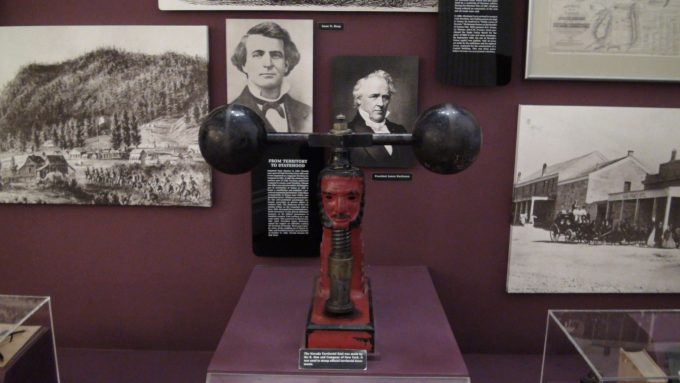
Monday, 24 September 2018
For He has spoken in a certain place of the seventh day in this way: “And God rested on the seventh day from all His works”; Hebrews 4:4
Again as with both verses 4:2 and 4:3, the author begins with, “For.” One thought logically follows the next as he builds a case concerning the availability of God’s rest for his audience. The words, “For He has spoken in a certain place,” are the same formula found in verse 2:6. Instead of saying that Moses wrote the thought, he applies the utterance to God who is the inspiration behind the words of Moses. Thus, he says, “in a certain place.” More correctly, it should say, “somewhere.” The indefinite nature is a way of ascribing the writing of the whole body of the Hebrew Scriptures to God.
It is somewhere in this body of writing, given by God, that He has spoken “of the seventh day in this way.” He is equating God’s rest with the seventh day after creation. This is then supported by quoting the Scripture which says, “And God rested on the seventh day from all His works.” This is a quote from Genesis 2:2. God worked six days and then He rested on the seventh.
It is noticeable that each of the six days of creation was followed by a statement which said, “So the evening and the morning were the [nth] day.” However, no such statement is given for the seventh day. God rested, and that state of rest continues on. It is speaking of the work of creation itself which is given as a pattern of the dispensations of redemptive history. There are seven dispensations, the last being the millennium.
The millennium, then, forms its own picture of God’s place of rest. This was what Canaan was to be for those who were redeemed from Egypt, but they did not receive their rest because of unbelief. And so God, through the author of the psalm, set another day which He called, “Today” (verse 4:7). Those who believe Today enter God’s rest (verse 4:3) which has been anticipated since the creation of the world. But it must be remembered that chapter 3 spoke of the Hebrew people in the plural. The promise of rest was given to them. It is accessible individually, but it is also left for them collectively. The rest of God is provided not through works of the law, but through belief in what the law pointed to, Christ. Until Israel comes to this collective understanding, they will not enter God’s rest as a people. Until then, only those who believe individually have access to this rest.
God rested from His works, and yet God’s work of redemption occurs within the stream of time through the work of Jesus Christ. The seventh day after creation is God’s resting from His labors, and yet His labors continue on in the Person of Jesus in anticipation of a final day when God’s people will enter the place of God’s rest. Understanding this, we can then grasp what Jesus was speaking of in John 5 –
“For this reason the Jews persecuted Jesus, and sought to kill Him, because He had done these things on the Sabbath. 17 But Jesus answered them, ‘My Father has been working until now, and I have been working.’
18 Therefore the Jews sought all the more to kill Him, because He not only broke the Sabbath, but also said that God was His Father, making Himself equal with God. 19 Then Jesus answered and said to them, ‘Most assuredly, I say to you, the Son can do nothing of Himself, but what He sees the Father do; for whatever He does, the Son also does in like manner.’” John 5:16-19
Christ’s works lead His people to the state of rest in His place of rest. This is seen in Isaiah 11:10 which speaks of the millennial reign of Christ. There, the word used is menukhah, the place (noun) of rest seen in Psalm 95, not shabat, or the state (verb) of rest found in Genesis 2 –
“And in that day there shall be a Root of Jesse,
Who shall stand as a banner to the people;
For the Gentiles shall seek Him,
And His resting place shall be glorious.” Isaiah 11:1
Everything centers on what God has done and continues to do in Christ Jesus. Entering into God’s rest comes by faith (belief) in God’s word as it points to Him.
Life application: The concept of God’s rest is being precisely stated by the author of Hebrews for the express purpose of getting his Hebrew audience to understand their need for Jesus, both individually and collectively. For any who believe in Christ Jesus (Jew or Gentile), they enter God’s rest; ceasing from their labors. For Israel as a whole, they will enter God’s rest when they have been refined and purified through the tribulation. Someday, they will collectively believe in Him, and they will enter into His promised rest, a rest which they have thus far failed to enter.
Gracious and merciful Lord God! We know that Your works have been finished from the foundation of the world, and that Your rest is available to us as a promise. The question is, “How do we enter that rest?” The answer comes back to us from the pages of Scripture as “Believe in the One whom You have sent.” Christ accomplished all that was necessary to grant us access into that wonderful place of rest. Thank You for what You have done through Him. We believe He did it all, and so we receive what You promise. Thank You for Jesus our Lord. Amen.
